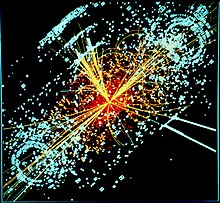Write4U
Valued Senior Member
It is hard to visualize gradual improvement in complexity and sentience over time.(It may be moot, but why would you change the question?)
No. The question was: How intelligent are insects?
I did not see the relevance of all the fancy couldn't-be-any-other-way mathematical patterns to the intelligence of insects -
or to the response - instinct - genetic memory - problem solving continuum in the evolution of thought.
Still can't, but that's all right.
But if we consider farmers who purposely select the best breeders, so does nature by "natural selection" (probability) which obviously requires long periods of time, for probabilities to be "tested" by nature, whereas in farming, certain traits can be achieved in a relatively sort time (a few generations).
And we can also look at athletes, who can improve on their performance in very short times, by sheer practice.
If sports is a family's means of survival, I would be willing to bet that offspring, gradually become better at it from observation alone, but when combined with practice, the chance that this offspring will develop better skills in their sport, than say a family of bookkeepers, who get better at maths. The environment itself forces specialization and given enough time, this specialization becomes part of the DNA coding.
Oh, lest we forget *mutations*. Below is what I believe to be the evolutionary stage of hominids and at what point home sapiens must have split from its common hominid ancestor. A simple mutation which is only present in only humans and not in any other hominid. I believe this was a significant mutation, which perhaps stimulated brain growth.
http://www.evolutionpages.com/chromosome_2.htmIntroduction
All great apes apart from man have 24 pairs of chromosomes. There is therefore a hypothesis that the common ancestor of all great apes had 24 pairs of chromosomes and that the fusion of two of the ancestor's chromosomes created chromosome 2 in humans. The evidence for this hypothesis is very strong

